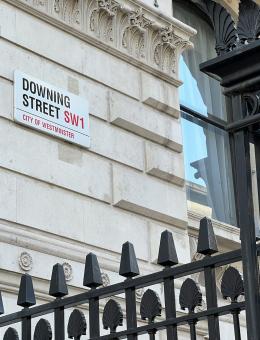
THE BUDGET: IT COULD HAVE BEEN WORSE FOR LANDLORDS
Published 8 November 2024
Whilst there has been much to mull over following last week’s Budget, for those involved ion the residential lettings market, the feeling is: it could have been worse, writes Catherine Hunt.
Which is not to say that the cumulative effect of the Chancellor’s announcements, those of the previous government, and, of course, the Renters Rights Bill don’t combine to present landlords and investors with significant challenges.
The good news first: most were pleasantly surprised that the rate of Capital Gains Tax for profits made on non-primary residences was left alone at 24%. That is not to say that this rate is set in stone for the whole five years of this Parliament, but at least it has not been increased – yet.
Of course, it wasn’t all pain-free, and the major announcement for the lettings market was the increase in the Higher Rate for Additional Dwellings (HRAD) stamp duty from 3% to 5%, with immediate effect. This presents an additional barrier to entry to the market for residential investors, especially as there is less scope to pass these additional costs onto tenants in the form of increased rents than there may have been a year or two ago.
Ultimately, though, these are relatively peripheral factors in determining whether investors will take the plunge and enter the market to provide more homes to rent in the private sector. Rather more important is the overall state of the economy, and especially the impact on interest rates, and the jury is still out on how last week’s Budget will contribute to that bigger picture.
I am writing this before Thursday’s MPC meeting which will decide whether there is to be a further reduction in interest rates. Reducing the cost of financing private rented accommodation is the single biggest thing that the Government (or in this case, the Bank of England) can do improve the residential lettings situation. Ultimately lower costs for landlords will mean a greater supply of homes, and less pressure to increase rents.
Finally, the shifting balance between capital taxes, business taxes and inheritance taxes (with the proposal to bring pensions – which can include investment properties held in SIPPs – into the scope of IHT) means that many investors are taking a long, hard look at the structure in which they hold their portfolios.
It is far from a cut-and-dry equation, with factors such as the erosion over the next 18 months of Business Asset Disposal Relief meaning the sands are constantly shifting. Taking expert advice has never been more important.
Share this story
Arnolds Keys Blog

BUDGET MEASURE WHICH WILL HAVE HUGE IMPACT ON FARMING
2 November 2024
This week’s Budget was always going to be painful for businesses, and so it turned out, writes Simon Evans. Read more >

REFLECTIONS ON REACHING 50 NOT OUT
1 November 2024
Regular readers of the EDP property supplement will have noticed that I celebrated something of a milestone last month: 50 years working for the same firm of estate agents, writes... Read more >

DON’T LET THE TAX TAIL WAG THE INVESTMENT STRATEGY DOG
16 October 2024
It is just a fortnight now until Rachel Reeves introduces the first Labour Budget for 14 years, probably the first socialist leaning budget since the 1970s, writes Guy Gowing. Read more >

NORTH NORFOLK ESTATE AGENT REACHES 50 NOT OUT
14 October 2024
A north Norfolk estate agent is celebrating 50 years working for the same firm – and says he still gets the same buzz out of closing a sale as he... Read more >
